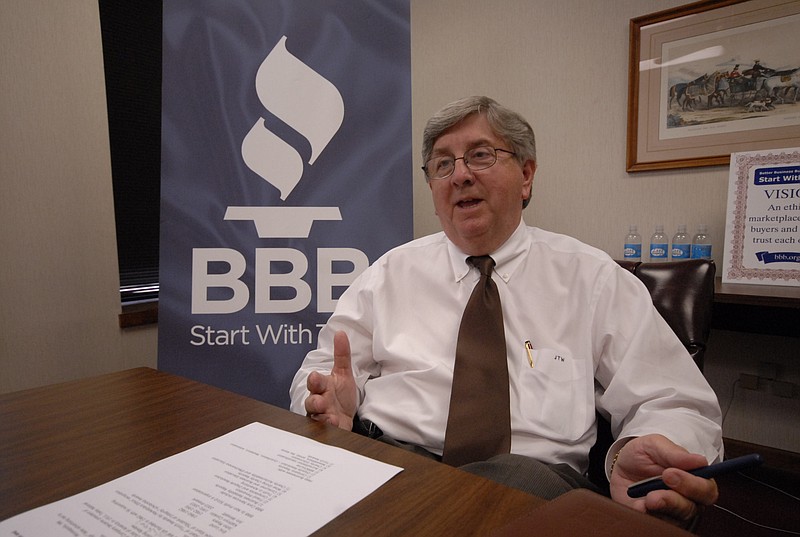Q. I see in the media that scams have been active for the summer. What advice may BBB offer to avoid being a victim of this activity?
A. Yes, scam activity has been very active this summer. BBB recently tried to assist a victim who lost $5,500 in the IRS scam. This person was intimidated by the fraudster and afraid they were going to be arrested. Without thinking or consulting with others, the person became a victim.
There are thousands of new scams every year, but if you can just remember these 10 things, you can avoid most scams and help protect yourself and your family.
1. Never send money to someone you have never met face-to-face. Please, just don't do it. An immediate red flag is the person asking you to use wire transfer, a prepaid debit card, or a gift card. These items cannot be traced and are as good as cash to a fraudster.
2. Don't click on links or open attachments in unsolicited email. Links can download malware onto your computer and/or steal your identity. Be cautious on emails that looks familiar; it could be fake.
3. Don't believe everything you see. Scammers are great at mimicking official seals, fonts, and other details. Just because a website or email looks official does not mean that it is. Even Caller ID can be faked.
4. Don't buy online unless the transaction is secure. Make sure the website has "https" in the URL (the extra s is for "secure") and a small lock icon on the address bar. Check out the company first at bbb.org. Read reviews about the quality of the merchandise, and make sure you are not buying cheap and/or counterfeit goods. Today over 75% of goods coming from China are counterfeit.
5. Be extremely cautious when dealing with anyone you've met online. Scammers use dating websites, Craigslist, social media, and many other sites to reach potential targets. They can quickly feel like a friend or even a romantic partner, but that is part of the con to get you to trust them. Romance scams increased dramatically in 2018.
6. Never share personally identifiable information. If someone who has contacted you unsolicited; whether it's over the phone, by email, on social media, or even at your front door. This includes banking and credit card information, your birth date, and Social Security numbers.
7. Don't be pressured to act immediately. Scammers typically try to make you think something is urgent or a limited time offer. They want to push you into action before you have time to think or to discuss it with a family member, friend, or financial advisor. High-pressure sales tactics are also used by some legitimate businesses, but it's never a good idea to make an important decision quickly.
8. Use secure, traceable transactions. When making payments for goods, services, taxes, and debts; do not pay by wire transfer, prepaid money card, gift card, or other non-traditional payment methods. Say no to cash-only deals, high pressure sales tactics, high upfront payments, overpayments, and handshake deals without a contract.
9. Whenever possible, work with local businesses. Businesses that have proper identification, licensing, and insurance, especially contractors who will be coming into your home. Check them out at bbb.org to see what other consumers have experienced; complaints or customer reviews.
10. Be cautious about what you share on social media. Consider only connecting with people you already know. Be sure to use privacy settings on all social media and online accounts. Imposters often get information about their targets from their online interactions, and can make themselves sound like a friend or family member because they know so much about you through social media.
Jim Winsett is president of the Better Business Bureau in Chattanooga. You can visit www.bbb.org for additional consumer tips.

